detail profile maria clara escobar

Riwayat Hidup
Maria Clara Escobar wrote and directed the feature film “Desterro”, her first fiction, selected for the Tiger Awards Competition at the 49th Rotterdam International Film Festival.
Before, she directed “The Days with Him”, documentary feature film awarded in festivals like Tiradentes (Brazil), DocLisboa (Portugal), or Cachoeira.
Doc (Brazil), and presented in in venues like IBAFF - Murcia International Film Festival (Spain), Directors Week (Brazil), or the International Festival of Nuevo Habana Latin American Cine (Cuba).
The film was commercially released in 18 cities in Brazil in April 2014 and released on DVD by Instituto Moreira Salles.
Maria Clara also wrote and directed two short films, wrote the screenplay and was the assistant director of Julia Murat’s “Found Memories”.
This film had its premiere at the Venice Film Festival and has won over 30 awards, having participated in over 40 festivals.
She recently worked in casting in two Berlinale’17 films: “Joaquim” by Marcelo Gomes (International Competition) and “Pendular” by Julia Murat (Panorama, where it won the Fipresci Award).
In 2019 Maria Clara released her first book of poems “Medo, Medo, Medo”.
Info Pribadi
Peran Yang Di Mainkan Maria Clara Escobar
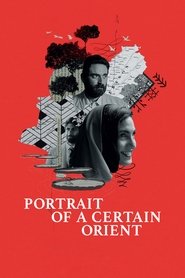 At the end of the 1940s...
At the end of the 1940s...Portrait of a Certain Orient 2024
At the end of the 1940s, Lebanon is sliding towards a devastating conflict. Catholic siblings Emilie and Emir decide to leave for Brazil. Aboard the ship to their new home, Emilie falls in love with Omar, a Muslim merchant. For an enraged and jealous Emir, the relationship is intolerable. As the story unfolds against the backdrop of the majestic rainforest, Emir’s actions and the choice that Emilie subsequently makes lead to disastrous consequences.
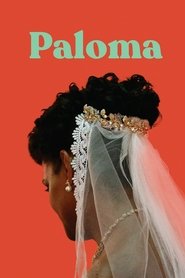 On a hot summer day Paloma...
On a hot summer day Paloma...Paloma 2022
On a hot summer day, Paloma decides to fulfill her most cherished dream: a traditional wedding in a church with her boyfriend Zé. She is a devoted mother, a hard-working farmhand in a papaya plantation and has been saving to afford the celebration. The priest’s refusal to marry her and Zé will force Paloma to confront the rural society. She suffers violence, betrayal, prejudice and injustice but nothing shakes the faith and determination of this transgender woman.
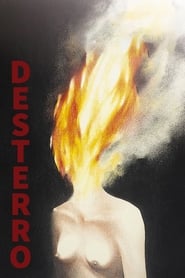 The couple Laura and Isral have...
The couple Laura and Isral have...Abandonment 2021
The couple Laura and Israël have a five-year-old son, Lucas. They live together but seem to have lost interest in one another's thoughts and cares. Their relationship seems headed for the rocks, and the only one who seems to still be looking for something from life is Lucas.
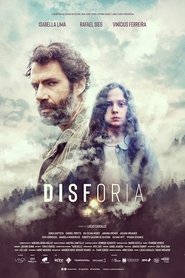 Dario is a psychologist who has...
Dario is a psychologist who has...Dysphoria 2020
Dario is a psychologist who has recently began taking child patients again, after going through a traumatic experience. His first patient is Sofia, a girl who makes others around her feel disturbing sensations.
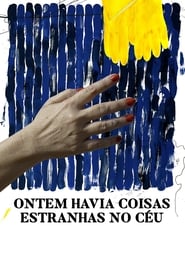 The daily life of a family...
The daily life of a family...Yesterday There Were Strange Things in the Sky 2020
The daily life of a family in which countless factors are disturbing: the father is unemployed, the members need to move house, the mother is abducted, and life continues as if nothing had happened.
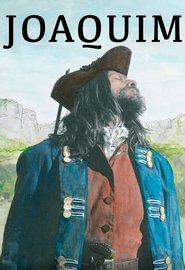 Brazil 18th century The colony of...
Brazil 18th century The colony of...Joaquim 2017
Brazil, 18th century. The colony of Portugal endures a decline in gold production. A Portuguese minority rules over a corrupt and autocratic society. Joaquim is an efficient soldier, famous for capturing gold smugglers. While waiting for his promotion to Lieutenant, he leaves for a risky mission in search of new gold mines - the only way to buy the freedom of Blackie, a slave he is in love with. Inspired by the true story of Tiradentes, the first leader of the Brazilian revolutionary movement.
 The year is 1984 Estela is going...
The year is 1984 Estela is going...Califórnia 2015
The year is 1984. Estela is going through the turbulent phase of adolescence. Sex, lovers, friendships; everything seems very complicated. Her uncle Carlos is her hero, and visiting him in California is her biggest dream. But everything collapses when he returns thin, weak and ill. Between crises and discoveries, Estela will face a reality that will forever change her way of seeing the world.
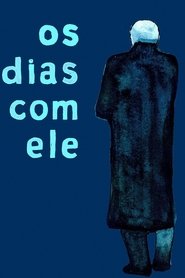 The discoveries and frustrations on accessing...
The discoveries and frustrations on accessing...The Days with Him 2014
The discoveries and frustrations on accessing a memory of a father and of a time in the Brazilian history that are rarely public. The young filmmaker plunges into this unknown past of her almost unknown father. He, a Brazilian intellectual, imprisoned and tortured during the military dictatorship, is silent about this since that time. A father and a fatherland that does not like to answer any questions, that loves but rarely talks.
 Each citizen of Jotuomba plays an...
Each citizen of Jotuomba plays an...Found Memories 2012
Each citizen of Jotuomba plays an integral role in village life. Madalena is responsible for baking bread; each morning she stacks her rolls as Antonio prepares the coffee. The two share a morning ritual of arguments and insults, followed by an amicable cup of coffee on the bench outside Antonio's shop. At midday the church bells ring, summoning the villagers to mass. In the early evening, they all share a meal together. And so life proceeds in Jotuomba, the days languidly drifting into one another; the only variations seem to be in the weather. But, one day Rita arrives looking for a place to stay.
 In Pernambuco a jewel robbery brings...
In Pernambuco a jewel robbery brings... A Nigerian musician travels to Brazil...
A Nigerian musician travels to Brazil...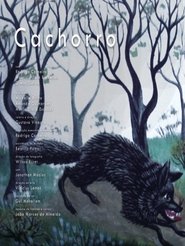 Marcelo has just been dumped by...
Marcelo has just been dumped by... The trajectory of a romantic couple...
The trajectory of a romantic couple... Brazilian short film directed by Julia...
Brazilian short film directed by Julia...
